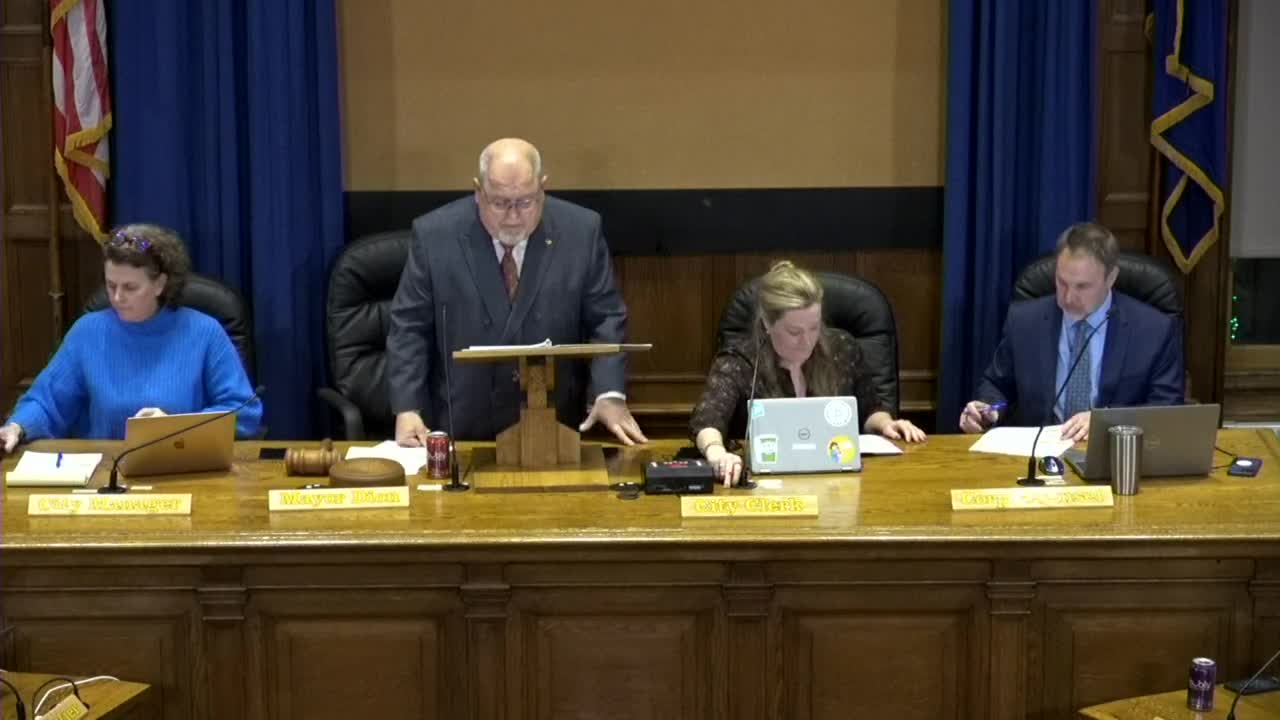Mayor Dion frames housing, harbor dredge funding and public safety as priorities in State of the City address
Get AI-powered insights, summaries, and transcripts
Subscribe
Summary
Mayor Mark Dion delivered Portland's annual State of the City address to the City Council, highlighting housing-code changes, infrastructure projects and public‑safety challenges while urging the council and the city’s legislative delegation to act on homelessness and police staffing.
Mayor Mark Dion delivered Portland's annual State of the City address to the City Council, highlighting housing-code changes, infrastructure projects and public‑safety challenges while urging the council and the city’s legislative delegation to act on homelessness and police staffing.
Dion outlined recent planning and permitting changes that he said will encourage higher‑density and mixed‑use development, noting the planning department’s seven‑year Recode effort and a redesign of permitting and inspection processes. “With the redesign of our internal process, getting to yes should become more predictable and consistent,” he said.
The mayor cited several housing and development metrics from 2024: 4,500 building permits issued; nearly $400,000 distributed to development initiatives that the administration says will create nearly 300 new affordable rental units, of which nearly 260 units are earmarked for households earning at or below 60% of area median income; and approval of an additional 439 housing units. Dion also asked the council to “reassess the Green New Deal’s inclusionary zone requirement” to evaluate the fee’s impact on residential development.
On waterfront infrastructure, Dion said the Portland Harbor Dredge Project has received a combined $25,000,000 in funding after more than a decade of planning and that construction has begun. He said the project will “recover over 26% of lost pier access due to the lack of water at low tide” and help sustain what he called the waterfront’s $1,000,000,000 blue economy. The mayor urged the council to develop policies addressing recurring storm surge and rising sea levels and to protect infrastructure in island neighborhoods.
Dion highlighted public‑health and family services delivered in 2024, saying maternal outreach nurses provided “over 2,000 in‑home visits” and that the city administered “more than 2,700 vaccines” targeted at underserved populations. He recommended the council consider ways to expand access to affordable childcare, calling the shortage a significant stressor on families and local employers.
Parks and open‑space actions cited by the mayor included planting 150 trees in Bayside, acquisition of a new 24‑acre park in North Deering and construction of a mountain‑bike challenge trail at Rivett and Trolley Park. He said the city invested in expanding ADA access points in park facilities; the mayor’s exact phrasing on the dollar amount was not specified in the meeting record.
Dion also described several transportation and infrastructure projects: a proposed intermodal rail station on Saint John Street, a $22,400,000 Libbytown safety and accessibility project focused on Congress Street and a $25,000,000 road improvement plan tied to the Roux Institute. He noted the Portland International Jetport handled more than 2,400,000 passengers last year.
Addressing homelessness and public safety, Dion said the city provided shelter beds to 2,000 unique individuals in 2024 and averaged 600 people nightly across three shelters. He warned staff capacity and space are strained and asked Portland’s legislative delegation in Augusta to seek additional state funding. On policing, he asked the delegation to support legislation allowing the Portland Police to run a local training academy to shorten the time between hiring and field deployment.
Votes at a glance The council approved a procedural motion to suspend the rules to postpone the 5 p.m. public comment on non‑agenda items to the evening second meeting and to allow a second council comment period. The motion was moved by Councilor Forney, seconded by Councilor Bullock and passed by roll call (Forney, Grant, Pelletier, Benavich, Bullock, Phillips and Mayor Dion voting yes).
Why it matters Dion’s address tied near‑term infrastructure and permitting changes to the city’s broader ability to produce housing, support businesses and respond to sea‑level rise. He framed homelessness and police staffing as issues that require state assistance and recommended the council evaluate an inclusionary‑zoning fee that he said may affect housing supply.
Looking ahead, the mayor asked the council to weigh policy responses to rising tides on Portland Harbor, to pursue partnerships with local colleges and the Roux Institute to grow workforce talent, and to press the state for funding and statutory changes needed to expand shelter capacity and local police training.
